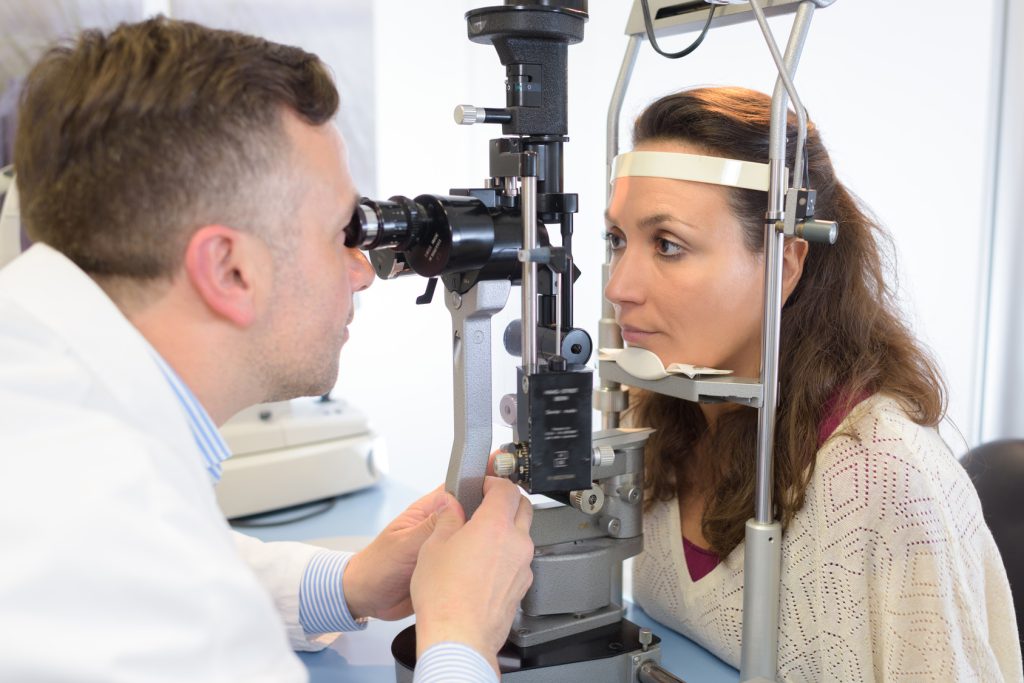-
What services do you provide?
Ophthalmology services currently available:
Adult squint service
Age related macular degeneration service
Anterior segment
Botulinum toxin service
Collagen cross-linking
Diabetes
Dry eye
General ophthalmology
Glaucoma
Medical retina
Paediatric ophthalmology
Uveitis
Day case procedures:
Cataract surgery
Laser therapy
Oculo-plastics
Orthoptics
Vitreoretinal surgery
General ophthalmology:
Age related macular degeneration service
Anterior segment
Botulinum toxin service
Laser therapy
Medical retina
Oculo-plastics
Visual field assessment
Vitreoretinal surgery
-
Ophthalmology outpatient clinic
We are pleased to offer a new, fully equipped Ophthalmology outpatient clinic, with appointments for the clinic available throughout the week. The clinic will be run by our expert Consultants, covering all eye conditions.
We also offer a full Bupa pathway for Cataract surgery, meaning you will not pay any additional extras on top of the price of their procedure. We also offer a competitive self-pay Cataract pathway.
Ask your GP or optician about being referred to our new clinic.
-
Treatment of Keratoconus & other corneal diseases
We are able to provide patients with access to a collagen cross-linking machine, which is used to treat Keratoconus and other corneal diseases.
Collagen cross-linking is a procedure for the treatment of Keratoconus, which has been shown to vastly improve the strength of the cornea following the treatment.
Treatment of Keratoconus
Keratoconus causes the clear covering of the eye (the corneal surface) to thin and bulge into a cone-like shape which leads to blurred and distorted vision. The use of glasses or contact lenses may help with the problem, but further treatment is necessary in some severe cases.
The procedure will be carried out by our consultant ophthalmic surgeon, Mr Maghizh Anandan FRCO, FRCS, MRCS, D.O, who below explains the process involved in the treatment, and how it benefits patients.
What is collagen cross-linking?
Collagen cross-linking, also known as C3-R, is a new treatment for keratoconus which has shown in extensive experimental studies to significantly increase corneal rigidity/stiffness, halting the progression of keratoconus in treated eyes. Collagen cross-linking uses a photosensitising agent, riboflavin (vitamin B2) and ultraviolet light (UVA, 365nm) exposure.
Mr Maghizh Anandan, consultant ophthalmologist at Harley Streets Private Health Care and Hospital
How is the treatment carried out?
The procedure is carried out under a local anaesthetic. Firstly, the top layer of the cornea is scraped slightly to help the riboflavin eye drops to be absorbed. While the eye drops are applied, a UVA light is shone onto the surface of the cornea for 30 minutes.
The eye drops and UVA light strengthen the fibres in the cornea via a process called cross-linkage. While the cornea is healing, patients may be given painkillers, antibiotic eye drops and artificial tears to prevent the cornea from becoming too dry.
Who can benefit from collagen cross-linking treatment?
It is important to understand that this procedure aims to halt the progression of keratoconus and is not a cure for the disease. Patients with documented evidence of keratoconus progression will benefit from the treatment, but will have to continue to wear glasses or contact lenses following the treatment – although a change in prescription may be required.
The main aim of cross-linking is to stop the progression of keratoconus and therefore prevent further deterioration in vision and the need for corneal transplantation. However, in advanced cases of keratoconus, where the thickness of the cornea is below 350 microns, this treatment may not be possible.
-
Ophthalmology Treatment Prices
Treatment guide prices
The prices shown below are for some of our most common procedures and are intended as a guide and is for the procedure only. Your consultant may require you to have diagnostic tests ahead of confirming the procedure required and this would be charged separately. If you cannot see the procedure you are looking for or would like to find out prices for the consultant of your choice, please contact us and we’d be happy to help.
Avastin injection £760
Cataract standard lens (one eye) £2,460
Collagen cross linking – single £2,000
Collagen cross linking – bilateral £3,700
Lucentis injection £1,240
Yag laser treatment – single from £358
Yag laser treatment – bilateral from £616



